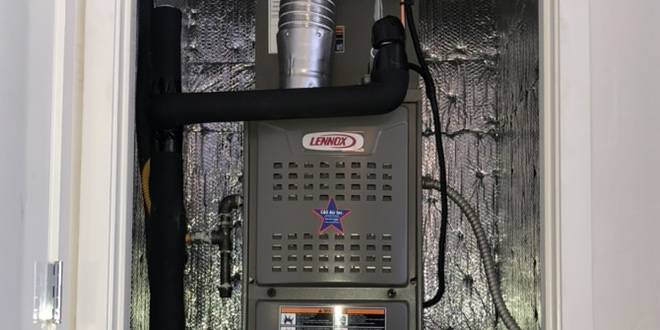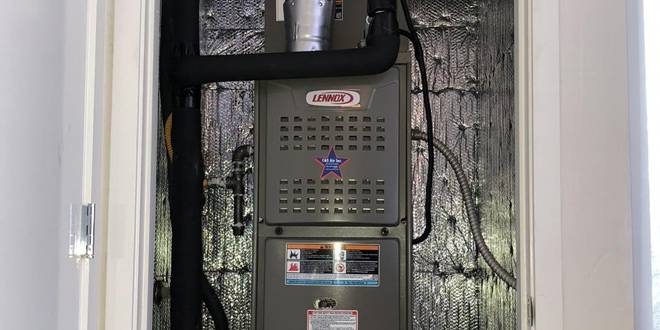
As Texans, we know the importance of a reliable heating system to combat those chilly winter nights. But with so many options available, choosing the right one can feel like navigating a frosty labyrinth. Fear not, fellow comfort seekers! Today, we’ll delve into the world of oil, gas, and electric heat, comparing their costs, efficiency, environmental impact, and comfort levels to help you make an informed decision that keeps your wallet warm and the planet cool.
Whether you’re a seasoned homeowner or a first-time furnace buyer, understanding the nuances of each heating system is crucial. After all, your choice impacts not just your monthly bills and home’s coziness but also our environment. So, buckle up, grab your favorite warm beverage, and let’s embark on this journey to heat your home wisely!
Cost: Demystifying the Financial Footprint of Different Heating Systems
Choosing the right heating system for your Texas home involves striking a balance between comfort and financial responsibility. Understanding the upfront costs, ongoing fuel expenses, and maintenance requirements of each option is crucial for making an informed decision.
Upfront Investment:
- Oil: While oil furnaces typically offer high heating output, they often require the highest initial investment due to installation costs and potential infrastructure upgrades, like storage tanks.
- Gas: Natural gas furnaces generally present a more moderate upfront cost compared to oil, as many regions benefit from existing gas infrastructure.
- Electric: The initial cost of electric heating systems varies depending on the specific technology chosen and your home’s existing electrical capacity. Upgrading your electrical panel might be necessary for certain high-powered systems.
Fuel Costs:
- Oil: Oil prices are known for their volatility, often leading to higher average fuel costs compared to gas or electricity.
- Gas: Gas typically offers relative stability and lower average fuel costs than oil in most Texas regions, but market fluctuations can still impact pricing.
- Electric: Electricity rates vary significantly by location and even time of day, presenting potential savings opportunities through strategic usage and integration with renewable energy sources. However, higher baseline electric rates compared to gas can sometimes offset these savings.
Maintenance:
- Oil: Regular maintenance, including annual tune-ups, tank maintenance, and potential leak repairs, contribute to the ongoing cost of owning an oil furnace.
- Gas: Similar to maintaining a reliable car, gas furnaces typically require annual checkups and occasional repairs.
- Electric: Generally, electric heating systems boast lower maintenance costs compared to oil, but the specific technology plays a role. For example, heat pumps require less frequent maintenance than resistance heaters.
Hidden Costs:
- Heating Oil: Storage tanks require space and may incur delivery fees, adding to the long-term expense.
- Gas: While generally safe, gas leaks and mandatory safety inspections can lead to unexpected costs.
- Electric: Upgrading your electrical panel for high-powered electric systems can be a significant upfront investment.
Remember, these are general trends, and the most cost-effective option for your home depends on specific factors like energy prices, existing infrastructure, and individual usage patterns. In the next section, we’ll delve into the realm of efficiency, exploring how each system maximizes your energy usage while delivering optimal comfort.
Efficiency: Transforming Fuel into Feel-Good Warmth
Now that we’ve explored the cost considerations let’s switch gears and unveil the efficiency secrets of each heating system. Remember, efficiency not only impacts your wallet but also plays a crucial role in minimizing your environmental footprint.
Efficiency Ratings:
- Oil: Modern oil furnaces typically achieve efficiency ratings between 80% and 85%, converting most of the fossil fuel into usable heat.
- Gas: High-efficiency gas furnaces can reach ratings of 95% or above, offering better fuel utilization than oil.
- Electric: The efficiency picture for electric heating gets interesting. Resistance heaters directly convert electricity into heat, resulting in 100% efficiency in energy conversion. However, the source of electricity plays a key role. If your electricity comes from renewable sources like solar or wind, the overall system efficiency becomes incredibly eco-friendly. Heat pumps, on the other hand, act like air conditioners in reverse, transferring heat from the outside air into your home. Though they don’t directly generate heat, their efficiency can reach impressive levels exceeding 300%, making them truly energy-saving champions.
Maximizing Efficiency:
- Oil: Regular maintenance and cleanings ensure optimal performance and prevent energy waste.
- Gas: Upgrading to a high-efficiency furnace and employing programmable thermostats can significantly improve efficiency.
- Electric: Choosing smart thermostats and weatherization measures can further enhance the efficiency of both resistance heaters and heat pumps. Additionally, exploring time-of-use electricity plans can provide cost savings if your system allows for flexible heating schedules.
Bonus Tip: For any heating system, proper insulation and air sealing in your home are crucial for minimizing heat loss and maximizing efficiency, regardless of the fuel source.
Remember, while individual heating system models within each category can vary in efficiency, understanding these general trends empowers you to make informed choices. In the next section, we’ll dive into the environmental impact of each option, helping you find a heating solution that keeps your home warm and the planet cool.
Environmental Impact: Choosing a Heating System That Cares for the Planet

As Texans who cherish our wide-open spaces and diverse ecosystems, minimizing our environmental impact should be a priority. Luckily, choosing the right heating system allows you to stay warm and cozy while contributing to a cleaner future. Let’s explore the environmental footprint of each option:
Carbon Footprint:
- Oil: Burning oil for heating releases the highest amount of greenhouse gasses like carbon dioxide, impacting climate change.
- Gas: Although cleaner than oil, gas furnaces still emit carbon dioxide and other pollutants during combustion.
- Electric: The environmental impact of electric heating depends heavily on the source of electricity. If generated from renewable sources like solar or wind, it practically eliminates carbon emissions. However, if powered by fossil fuels, its impact may be comparable to gas.
Regulations and Sustainability:
- Oil: Some regions are phasing out oil heating due to its environmental impact, potentially impacting future availability and resale value of oil-heated homes.
- Gas: Regulations on emissions and methane leaks are tightening for gas furnaces, potentially increasing future costs and complexity.
- Electric: With the growing push for renewable energy, electric heating powered by clean sources offers the most sustainable long-term solution.
Beyond Carbon:
- Oil: Potential oil spills and leaks pose environmental risks during transportation and storage.
- Gas: Methane leaks from pipelines and infrastructure contribute to greenhouse gas emissions, even without combustion.
- Electric: Electric systems generally have minimal negative environmental impact beyond the electricity generation source.
Remember, every decision has ripple effects. By choosing a heating system with a lower environmental impact, you’re not just warming your home – you’re contributing to a healthier planet for yourself and future generations.
Find Your Heating Sweet Spot: Comfort & Planet-Friendly Solutions
Ready to ditch the winter chills without breaking the bank or the planet? C&S Air helps you navigate the world of oil, gas, and electric heating to find the perfect fit for your needs.
Get a personalized quote and expert advice – it’s FREE & easy! Just click below, and let’s create a warm, cozy, and sustainable winter for you and your loved ones. ❄️
